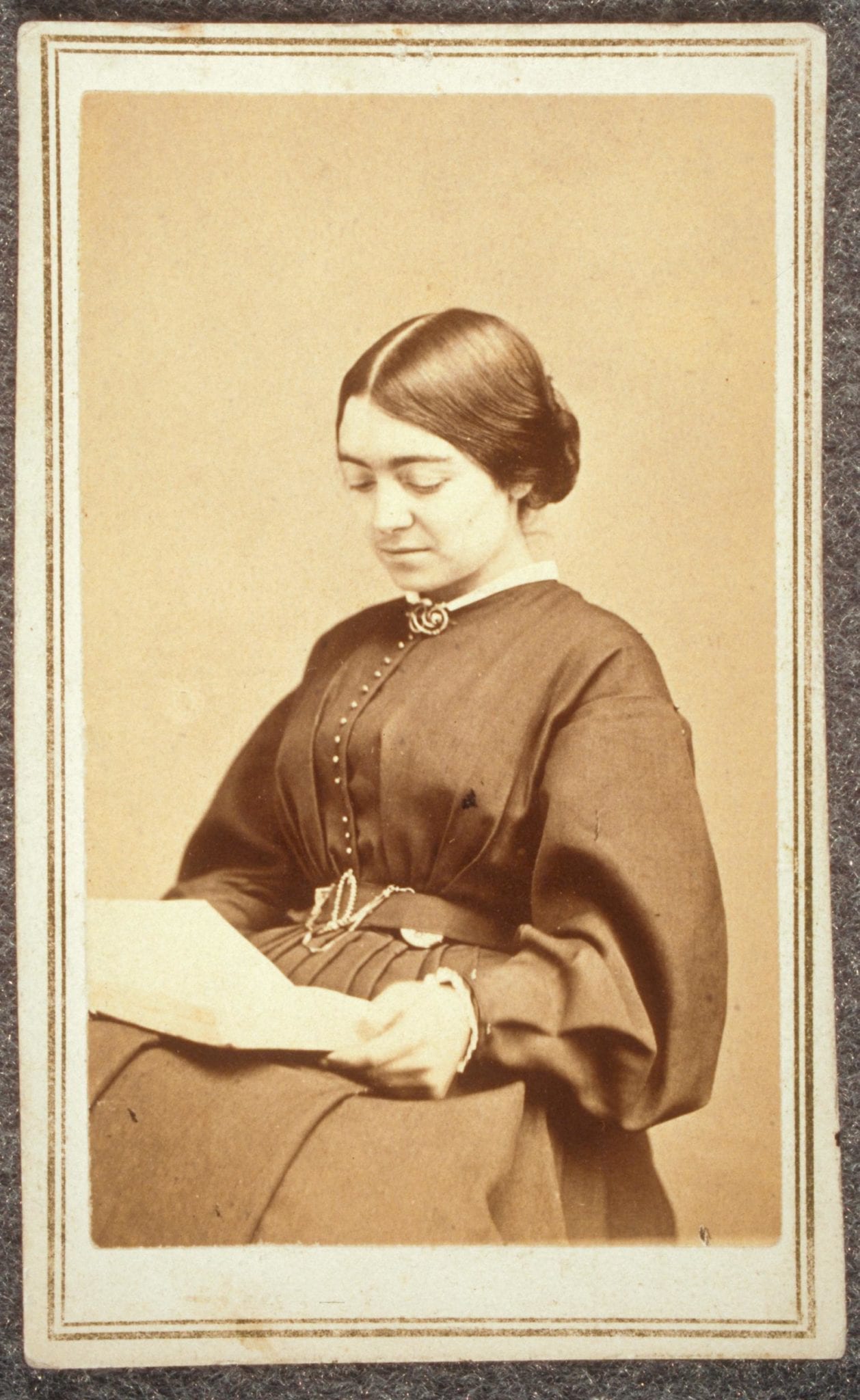Mary Corinna Putnam Jacobi (1842-1906) was born in London to American parents. She spent her childhood and adolescence in New York, where she studied pharmacy before receiving her medical degree in Philadelphia in 1861. In 1866, after briefly working in Boston with Marie Zakrzewska,1 she went to Paris to further her medical training. Back in New York she became involved in organizing associations for the advancement of women in medicine. She lectured and became a professor of medicine and therapeutics, and as attending and consulting physician opened the first children’s ward in New York in 1886. She became a member of several distinguished medical societies and was the first female member of the New York Academy of Medicine.
A prolific writer, she wrote over 120 articles and nine books, as well as short stories; she also carried out research, and was an advocate for high educational standards and equal roles for women in society and medicine. In 1876 she published an important paper with statistics, tables, and clinical data proving that women were physiologically equal to men and should not have to play an inferior role in society. Her essay received the important Boylston Prize from Harvard University and contributed greatly to the women’s suffrage movement in the United States. In 1906 she developed a brain tumor and carefully recorded her symptoms in order to publish the clinical features of her disease before her death.
Reference:
Cynthia Kramer. “Marie Elizabeth Zakrzewska: immigrant, physician, teacher.” Hektoen International, Physicians of Note, Spring 2017. https://hekint.org/2017/04/26/marie-elizabeth-zakrzewska-immigrant-physician-teacher/
 |
| Portrait of Mary Putnam Jacobi likely by Abraham Bogardus. ca. 1860-1865. The Schlesinger Library, part of the Radcliffe Institute for Advanced Study at Harvard University. Public Domain. |
Highlighted Vignette Volume 13, Issue 1 – Winter 2021
Fall 2019 | Sections | Women in Medicine

Leave a Reply